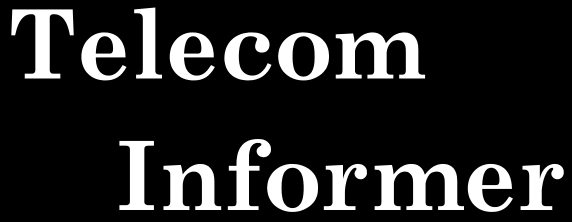Greetings from the Central Office! It’s hard to believe that summer is already here, but the solstice is just around the corner and the rain has already gotten a little warmer.
Although I rarely see the sun from my windowless workplace, we actually get a lot of it during the summer. Here in the Pacific Northwest, the sun rises just after 5 in the morning, and doesn’t set until after 9 at night. With only 3 months a year of semi-decent weather, people spend a lot more time outdoors, and mobile phone usage skyrockets. Capitalism being what it is, unscrupulous mobile service providers are lurking in the shadows with an interesting new way to make a quick buck. And like our indigenous (and revolting) banana slugs, they’re leaving a trail of slime wherever they go.
The more that scams change in the telecommunications industry, the more they stay the same. During the 1980s, premium-rate “information services” such as 976, 540, and 900 numbers were introduced. Although there were a few exceptions (such as pay-per-call technical support lines), these services were mostly scams intended to bilk unsuspecting subscribers. They’d offer dial-a-joke, dial-a-moan, or other services of dubious value, adding eye-popping (and often undisclosed) charges to a subscriber’s monthly bill. When you received an outrageous phone bill, Ma Bell would claim that they were just a billing agent, but then threatened to shut off your phone if you didn’t pay the so-called “third party” charges. There were few (if any) regulations around disclosure of pay-per-call charges, or opportunities to opt out of them.
Eventually, both the FCC and numerous state public utility commissions intervened to stop the madness. They required Ma Bell to block “information service” pay-per-call numbers at no charge upon request, and prohibited disconnection of your line for failure to pay third-party charges (provided that you paid your local service charges on time). Additional requirements were placed on service providers, forcing them to both disclose pricing up front and allow subscribers to hang up without being charged if they didn’t agree. Predictably, the market for such “information services” effectively dried up—after all, it’s only profitable to run a scam if you can both fool a sucker and force them to pay without recourse.
Well, fast forward to 2007, and the same thing is happening all over again. Ever heard of Dada Mobile? Blinko? Jamster? Until recently, I hadn’t, but I prefer to spend my evenings in the central office performing “service monitoring” of my subscribers’ private conversations. Hey, if the NSA doesn’t need a warrant, I figure that I don’t either. However, if you watch MTV, American Idol, or any television show with a mainstream audience, you’ve probably encountered an ad for a “premium-rate text” service offered via a SMS short code. In other words, vote for your favorite celebrity, and get soaked on your cellular phone bill. Or, if you’re creative, maybe soak someone else’s cellular phone bill…
SMS short codes (referred to as Common Short Codes, or CSCs) are 5-digit and 6-digit codes issued by the CTIA, a cellular industry lobbying group. Anyone can lease one, at costs ranging from $500 per month (for a randomly issued CSC) to $1000 per month (for a vanity CSC). This gets you the number assignment, and maintenance in the CSC database (which is performed by NeuStar, a company that controls a shocking percentage of cellular network infrastructure; among other things, they also control system ID assignments). However, owners of CSCs must negotiate interconnection agreements with every wireless carrier individually. Alternatively, they can work with a service provider (such as VeriSign—another corporation with an incredible degree of influence in the wireless industry) who has existing interconnection agreements with most carriers.
Armed with a short code and an interconnection agreement, you’re in business! Just fool some sucker (often a child) into sending you a text message, and you can then tack absurd charges (which can recur as often as weekly) onto their phone bill with virtual impunity. Sure, there are some voluntary industry provisions and codes of conduct, which in practice are just so much horse manure. It’s just like the bad old days of the 1980s; charges are billed with scant (if any) disclosure and wireless phone companies threaten to shut their customers’ phones off if the third-party charges aren’t paid. The difference is the sheer audacity with which this is done, and the almost complete lack of recourse. Wireless telecommunications (by design) is a virtually unregulated industry. Don’t expect relief from the FCC or public utility commissions on this one. And with Congress in the pocket of lobbying groups such as the CTIA, this problem is unlikely to ever be solved.
(By the way, thanks, Erratic, for subscribing my cell phone to 8 separate ring tone download and celebrity update services this morning. I can’t wait to get my bill, and I hope you don’t mind that the USOC on your POTS line changed to 12B. Oops, my finger slipped.)
So, let’s rewind to the 1980s again. In 1984, the long distance market was deregulated. Most subscribers stayed with AT&T, but upstarts MCI and Sprint quickly grabbed the #2 and #3 shares in the market, respectively. By the late 1980s, there were over a dozen long distance companies, and by the early 1990s there were literally hundreds. The market became increasingly cutthroat, and providers came up with all sorts of interesting ways to gain your long distance business. For example, one long distance company did business as “The Phone Company,” so any (often elderly) subscriber that asked for “The Phone Company” as their long distance provider would get them—not surprisingly, at uncompetitive rates. Another company, LCI, sold its services via multi-level marketing, often alongside products like Amway and Mary Kay. Evidently, it paid off; today, LCI is Qwest, one of the few remaining Baby Bells. And everyone has probably heard the story of cigar-chomping Mississippi scam artist Bernie Ebbers, former CEO of WorldCom—and now Inmate #56022-054 at FCI Oakdale.
With all of this competition, a practice known as “slamming” became a major problem. Long distance companies would use dubious (often bordering on unethical) methods to switch you to their long distance services. For example, AT&T mailed millions of $100 checks. These looked like rebate checks, perhaps from a legal settlement (of which there were many at the time). However, the fine print on the back indicated that your signature authorized switching your long distance service to AT&T. And for a few years, it seemed like no dinner in America would ever go uninterrupted by a sales pitch from a long distance company. Some companies didn’t even bother asking for authorization. They’d just switch you to their long distance service (often billed at outrageous rates). Many consumers didn’t even notice.
Eventually, enough politicians were personally affected by the problem, and the FCC cracked down again. Subscribers now have the right to initiate a “PIC Freeze,” which requires the subscriber to contact their local phone company to change long distance carriers. Unscrupulous carriers who engage in slamming are subject to fines and even criminal penalties. And for the most part, it doesn’t matter much anymore; most subscribers use their cell phones for long distance these days. Without much fanfare, AT&T exited the residential long distance market late last year.
These days, we’re beginning to see a different kind of slamming—cell phones! For the past few years, you’ve been able to take your phone number with you when changing carriers. Unscrupulous wireless phone companies have used this to their advantage. They call, introduce themselves as something like “Your Wireless Phone Company” (that’s their actual company name, just like the long distance carrier calling itself “The Phone Company”), and offer to send you a new, free phone. If you agree, they will indeed send you a free phone—along with a brand new service provider, a brand new rate plan (at unfavorable rates), and a brand new contract with a hefty early termination fee. Adding insult to injury, your previous wireless provider will also bill you an early termination fee if you were still in contract with them. And all of this is being done legally, under procedures outlined by the FCC. Speaking of the law of unintended consequences, your existing wireless provider is prohibited by law from even warning you that you might be the victim of a scam.
And on that note, an outside plant technician told me that we’re headed for a few sunbreaks, and the clock tells me that my shift is over. It’s time to get outside and enjoy the weather! Have a fun summer, watch out for phone scams, and I’ll see you again in the fall. Or perhaps, if you’re lucky enough to visit the spectacular Pacific Northwest, you’ll even see me at a 2600 meeting!


